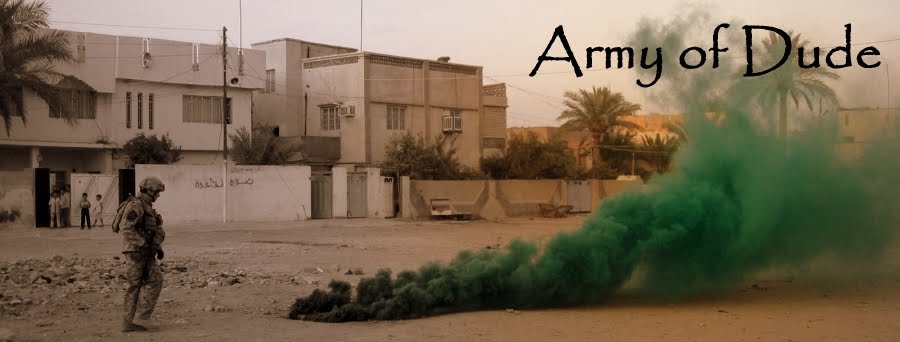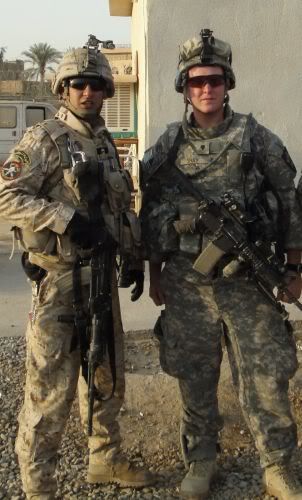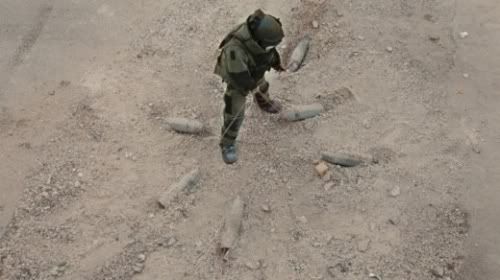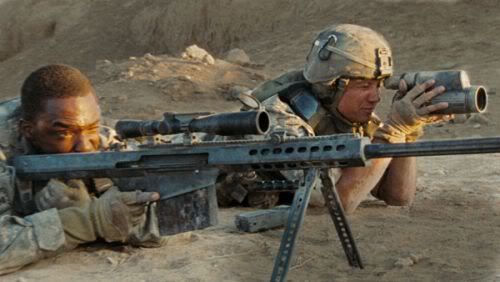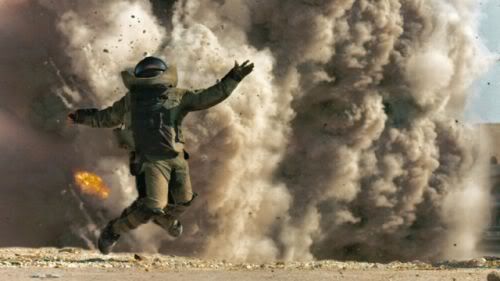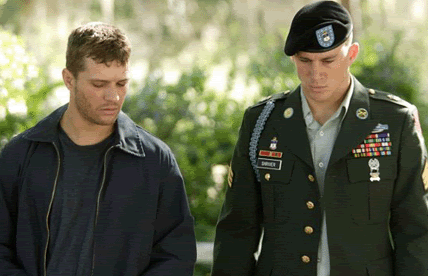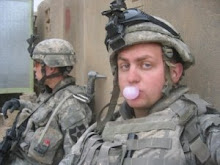For many student veterans across the country, the first semester under the Post 9/11 GI Bill is in the books. Some of the smarter folks opted to stay with the old Chapter 30 until the new bill, Chapter 33, was fully worked out. Others chose to put their faith into the VA and went with the Post 9/11 GI Bill, much to the chagrin of bill collectors and landlords. It is not clear what the VA has learned since the Great GI Bill Kerfuffle of 2009, but it is evident that problems will continue into the new year. Its fully automated system won't be in place until December 2010, so for the next year the crush of new applicants will have to be processed by a team of monkeys pounding on the keyboard of a Commodore 64. According to the VA, less than 5,000 eligible students are still waiting for payments. Take a stroll through the many comments left on the Post 9/11 GI Bill Facebook page and it might give you a reason not to believe such an estimate. The comments left by students still waiting for tuition payments read like a digital Trail of Tears, with many pleading for help months after submitting their paperwork. One post from early December challenges Facebook users to amass 10,000 followers by 2010. Perhaps a real goal, like completing 10,000 applications by the end of the fall semester, was too bold a prospect.
Student veterans have suffered at the hands of the VA's negligence this fall, but we've developed a knack for pressing on in less than hospitable environments. With the spring semester approaching, there will be many new veterans going to class for the first time. Just like beginning a military career, starting college can be a bit daunting. This spring will be my fifth semester in school, and along the way I've learned the ropes of not only the VA system, but how to successfully get along in the classroom. This week I have prepared a list of pointers useful for a new student facing college life with the VA for the first time. After the New Year, I'll be back with the human side of school and how to best adapt to the peculiar nature of school post enlistment.
***
Back to School, Or: How I Learned to Stop Worrying And Wrapped Myself In Red Tape
Know Their Role
On every campus, there is a certifying official that works in the VA system. While a counselor helps you select courses, a certifying official ensures those classes will be paid for by the VA. Only courses in your chosen degree plan will go on the VA's tab; anything extra comes out of your pocket. If there is a hangup in the application and certification process, there are only two reasons why: the VA is using your paperwork to keep their furnace going, or your school official has dropped the ball. Save their number in your phone and hassle them until they send everything on their end. Unlike professors, you cannot choose your certifying officials. Mine aren't the greatest, but it's always a good idea to visit their office so you can double check your classes and make sure everything is set for the next semester. You don't want to be stuck with the bill, as many veterans found out this year. Which leads to the next point...
Choose Wisely
Whether you're on Chapter 30 or Chapter 33, you have 36 months of eligibility (36 months to attend classes, not three years of school). Going full time, you can squeak out a degree in four years if you waste as little time as possible. Avoid the temptation to choose courses pertinent to your degree when you start school. Almost everyone changes their degree at least once, and you don't want to be stuck with useless credits and diminishing months of eligibility. Start out with basic courses that have to be taken to fulfill any degree plan. Good places to start: English I and II, US History and beginning science courses. Consult with your school counselor to nail down what classes satisfy the basics that align with your chosen major, then go back to your certifying official to double check your schedule to make sure all your classes will be certified.
Start Small
Like many other student veterans, I began my collegiate effort at my local community college. Straight out of the Army, no university would take an unproven goofball with no SAT score and a high school GPA hovering between 1.5 and 2. Most universities have a credit threshold where they consider a student for enrollment just by looking at college level work, not SATs or high school GPA. Not only is community college a surefire way into a university, but it's a place to once again familiarize yourself with the classroom and get a feel for homework, professors and the climate of college level work before moving on to a traditional four year institution. It's a great confidence builder in what seemed like an indomitable place when you were enlisted. While I was deployed and dreaming about going to school, the university in my fantasy was a baffling obelisk of hardship where only the most cunning would succeed. Now I'm holding a 3.8 transferable GPA and yawn in the general direction of essays. A few semesters in community college will help tear down the notion that college is an overly difficult experience, and if you're using Chapter 30, it's more money in your pocket. But remember, you cannot stay there forever.
Know The Endgame
I'm going to school at Austin Community College and I'm going to transfer to St. Edward's University to get a degree in global studies. As I mentioned above, you have to take classes that apply to your degree plan. ACC does not have a degree plan for global studies and I've taken just about every basic course offered, so I have to moonlight as a liberal arts general education major to get my classes certified by the VA. If you start in community college, figure out what university you want to attend and get a transfer guide to make sure every credit will transfer over with no fuss. If you slip up and decide to change schools or majors, you will have a difficult time getting everything to transfer neatly. For example, I took an introductory speech class to fulfill the international studies (AKA global studies) degree plan at Texas State, but now I'm going to St. Edwards. They require public speaking, so now I have to retake what is essentially the same class. Since the moonlighting degree I'm on requires just one speech class, I have fulfilled that class permanently. It can't come off my record, and the VA won't pay for my public speaking class because it's not on my current degree plan. I'll be paying out of pocket for that class because I didn't stick to the plan. The GI Bill is generous only when you're on point. You cannot afford to play grab ass and screw around for years trying to decide what to do like your civilian counterparts. Figure out what you want to study before you finish your basics or pay the consequences, either with lost time or a thinner wallet.
Less Hurry Up, More Wait
Hope that your certifying officials are high speed, but prepare for frustrations ahead. Even the most basic of questions directed at your certifying official will likely be met with a perpetual shrugging of the shoulders, though it's not entirely their fault. Call me a cynic, but it would seem the line of communication between the certifying officials and the VA are less than optimal. They don't seem to know a great deal, especially in the midst of an unprecedented program like the Post 9/11 GI Bill. I had two fairly succinct questions for my school certifying official when my application got lost in the sauce:
1. What the hell is going on?
2. Where's my green at?
The answer I got to both questions was a resounding "I don't know," so I had to go straight to the top to get a clear picture. Unfortunately, not everyone has a blog that complains loud enough for VA officials to take notice. Just like playing the ETS game, find other veterans to compare experiences with and see what works and doesn't work. Another veteran at the same school can hold valuable insight into which certifying officials are good, which are not so good, and how to best navigate through the system with the least amount of stress. School is about going to class and making the grades, not fighting a bureaucracy, but that's the nature of the game. Battle buddies make everything easier, and school is no exception.
Slow is Smooth
If the military was the path you took out of high school, it's likely you are not from the privileged class. A part time or full time job is usually a good idea to supplement the housing allowance under Chapter 33. Even though BAH rates changed for the year 2010, housing for student veterans will be calculated using the 2009 amounts. Be sure to check the amount you'll be getting to give yourself a clear financial picture (select E-5 as the pay grade; the amount for an E-5 with dependents will be your housing allowance). If you still need a job but don't think you can handle a full school schedule, find out what your school considers half time, and go a credit over that amount. As long as you take just a credit more than half time, you can get get the full housing allowance without taking a lot of classes (and you will only be charged 3/4 of a month instead of a whole month). For example, half time at my school is six credit hours. If I were to take six hours, I would get several hundred dollars less in my housing allowance than if I took seven. Consult with your certifying official to confirm this, as every school has different rules and ways to figure hours, especially those weirdos on the west coast. This option is definitely slower than taking a full load, but it would be wise to consider when juggling a job and family.
***
I hope these few pointers are enough for fellow veterans to feel a little more prepared to take the plunge into academia. School is the next logical step after an enlistment, so take the considerable opportunity you've been given with the GI Bill (and cross your fingers some clerk in Washington D.C. won't make paper airplanes out of your application). With any luck and these tips in hand, school should be just a tiny bit easier to take on. Just be sure to look before you leap.
Next week: coming to terms with the idea that you're just a little bit different than the 18 year old hipster sitting behind you.
Student veterans have suffered at the hands of the VA's negligence this fall, but we've developed a knack for pressing on in less than hospitable environments. With the spring semester approaching, there will be many new veterans going to class for the first time. Just like beginning a military career, starting college can be a bit daunting. This spring will be my fifth semester in school, and along the way I've learned the ropes of not only the VA system, but how to successfully get along in the classroom. This week I have prepared a list of pointers useful for a new student facing college life with the VA for the first time. After the New Year, I'll be back with the human side of school and how to best adapt to the peculiar nature of school post enlistment.
***
Back to School, Or: How I Learned to Stop Worrying And Wrapped Myself In Red Tape
Know Their Role
On every campus, there is a certifying official that works in the VA system. While a counselor helps you select courses, a certifying official ensures those classes will be paid for by the VA. Only courses in your chosen degree plan will go on the VA's tab; anything extra comes out of your pocket. If there is a hangup in the application and certification process, there are only two reasons why: the VA is using your paperwork to keep their furnace going, or your school official has dropped the ball. Save their number in your phone and hassle them until they send everything on their end. Unlike professors, you cannot choose your certifying officials. Mine aren't the greatest, but it's always a good idea to visit their office so you can double check your classes and make sure everything is set for the next semester. You don't want to be stuck with the bill, as many veterans found out this year. Which leads to the next point...
Choose Wisely
Whether you're on Chapter 30 or Chapter 33, you have 36 months of eligibility (36 months to attend classes, not three years of school). Going full time, you can squeak out a degree in four years if you waste as little time as possible. Avoid the temptation to choose courses pertinent to your degree when you start school. Almost everyone changes their degree at least once, and you don't want to be stuck with useless credits and diminishing months of eligibility. Start out with basic courses that have to be taken to fulfill any degree plan. Good places to start: English I and II, US History and beginning science courses. Consult with your school counselor to nail down what classes satisfy the basics that align with your chosen major, then go back to your certifying official to double check your schedule to make sure all your classes will be certified.
Start Small
Like many other student veterans, I began my collegiate effort at my local community college. Straight out of the Army, no university would take an unproven goofball with no SAT score and a high school GPA hovering between 1.5 and 2. Most universities have a credit threshold where they consider a student for enrollment just by looking at college level work, not SATs or high school GPA. Not only is community college a surefire way into a university, but it's a place to once again familiarize yourself with the classroom and get a feel for homework, professors and the climate of college level work before moving on to a traditional four year institution. It's a great confidence builder in what seemed like an indomitable place when you were enlisted. While I was deployed and dreaming about going to school, the university in my fantasy was a baffling obelisk of hardship where only the most cunning would succeed. Now I'm holding a 3.8 transferable GPA and yawn in the general direction of essays. A few semesters in community college will help tear down the notion that college is an overly difficult experience, and if you're using Chapter 30, it's more money in your pocket. But remember, you cannot stay there forever.
Know The Endgame
I'm going to school at Austin Community College and I'm going to transfer to St. Edward's University to get a degree in global studies. As I mentioned above, you have to take classes that apply to your degree plan. ACC does not have a degree plan for global studies and I've taken just about every basic course offered, so I have to moonlight as a liberal arts general education major to get my classes certified by the VA. If you start in community college, figure out what university you want to attend and get a transfer guide to make sure every credit will transfer over with no fuss. If you slip up and decide to change schools or majors, you will have a difficult time getting everything to transfer neatly. For example, I took an introductory speech class to fulfill the international studies (AKA global studies) degree plan at Texas State, but now I'm going to St. Edwards. They require public speaking, so now I have to retake what is essentially the same class. Since the moonlighting degree I'm on requires just one speech class, I have fulfilled that class permanently. It can't come off my record, and the VA won't pay for my public speaking class because it's not on my current degree plan. I'll be paying out of pocket for that class because I didn't stick to the plan. The GI Bill is generous only when you're on point. You cannot afford to play grab ass and screw around for years trying to decide what to do like your civilian counterparts. Figure out what you want to study before you finish your basics or pay the consequences, either with lost time or a thinner wallet.
Less Hurry Up, More Wait
Hope that your certifying officials are high speed, but prepare for frustrations ahead. Even the most basic of questions directed at your certifying official will likely be met with a perpetual shrugging of the shoulders, though it's not entirely their fault. Call me a cynic, but it would seem the line of communication between the certifying officials and the VA are less than optimal. They don't seem to know a great deal, especially in the midst of an unprecedented program like the Post 9/11 GI Bill. I had two fairly succinct questions for my school certifying official when my application got lost in the sauce:
1. What the hell is going on?
2. Where's my green at?
The answer I got to both questions was a resounding "I don't know," so I had to go straight to the top to get a clear picture. Unfortunately, not everyone has a blog that complains loud enough for VA officials to take notice. Just like playing the ETS game, find other veterans to compare experiences with and see what works and doesn't work. Another veteran at the same school can hold valuable insight into which certifying officials are good, which are not so good, and how to best navigate through the system with the least amount of stress. School is about going to class and making the grades, not fighting a bureaucracy, but that's the nature of the game. Battle buddies make everything easier, and school is no exception.
Slow is Smooth
If the military was the path you took out of high school, it's likely you are not from the privileged class. A part time or full time job is usually a good idea to supplement the housing allowance under Chapter 33. Even though BAH rates changed for the year 2010, housing for student veterans will be calculated using the 2009 amounts. Be sure to check the amount you'll be getting to give yourself a clear financial picture (select E-5 as the pay grade; the amount for an E-5 with dependents will be your housing allowance). If you still need a job but don't think you can handle a full school schedule, find out what your school considers half time, and go a credit over that amount. As long as you take just a credit more than half time, you can get get the full housing allowance without taking a lot of classes (and you will only be charged 3/4 of a month instead of a whole month). For example, half time at my school is six credit hours. If I were to take six hours, I would get several hundred dollars less in my housing allowance than if I took seven. Consult with your certifying official to confirm this, as every school has different rules and ways to figure hours, especially those weirdos on the west coast. This option is definitely slower than taking a full load, but it would be wise to consider when juggling a job and family.
***
I hope these few pointers are enough for fellow veterans to feel a little more prepared to take the plunge into academia. School is the next logical step after an enlistment, so take the considerable opportunity you've been given with the GI Bill (and cross your fingers some clerk in Washington D.C. won't make paper airplanes out of your application). With any luck and these tips in hand, school should be just a tiny bit easier to take on. Just be sure to look before you leap.
Next week: coming to terms with the idea that you're just a little bit different than the 18 year old hipster sitting behind you.
